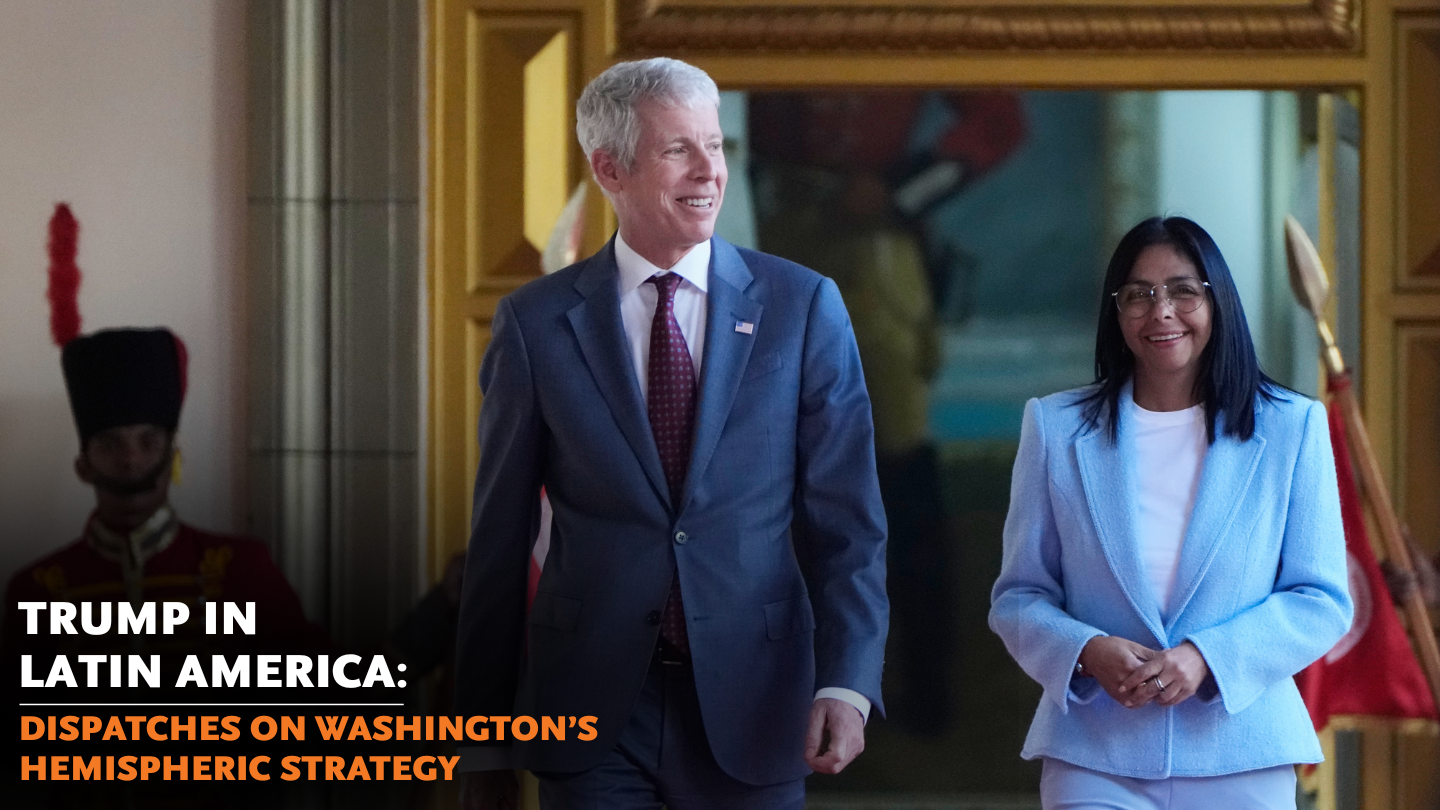Delaying the Deal
Delaying the Deal
The U.S. House of Representatives stalled the bilateral free-trade deal with Colombia, approving a rule change that waives a requirement to consider the agreement within 90 days. The future of the pact remains uncertain.
The U.S. House of Representatives approved a rule change to delay congressional consideration of the U.S-Colombia free-trade agreement, waiving fast-track law that requires Congress to act on the trade legislation within 90 days. The vote of 224-195 was drawn largely along party lines, with Democratic leadership opposing the White House’s Monday decision to submit the U.S.-Colombia Trade Promotion Act (TPA).
House Speaker Nancy Pelosi (D-CA) explained the decision to remove the timeline from the TPA’s consideration by saying it would likely be rejected if put to a vote immediately. “I thought there was everything to be gained” from continuing discussion of the trade deal, said Pelosi prior to introducing the rule change.
The Bush administration responded in opposition to the delay. U.S. Trade Representative (USTR) Susan Schwab said the decision “is upending decades of U.S. trade policy and U.S. trade law.” Secretary of State Condoleezza Rice, speaking after meeting with her Mexican and Canadian counterparts, said that both expressed concern “that the failure of the United States to pass this free trade agreement would have very serious consequences.” Over the past year, several leaders from across the Americas urged the United States to approve the deal.
“If the U.S. turns its back on its friends in Colombia, this will set back our cause far more than any Latin American dictator could hope to achieve,” remarked Canada’s Prime Minister Stephen Harper during a September 2007 speech at the Council on Foreign Relations.
The decision comes weeks before the primary in Pennsylvania—a key state in the highly contentious race for the Democratic nominations—where candidates have been outspoken in their opposition to the accord. Hillary Clinton stepped up rhetoric against the TPA after her campaign strategist Michael Penn resigned when it came to light that he had lobbied on behalf of the deal. As the Los Angeles Times notes, the House delayed the pact, “sparing Democratic presidential candidates the need to choose between businesses that support the deal and unions that oppose it.” Opponents to the trade deal voice concern that its passage would lead to U.S. job losses. However, a USTR fact sheet explains that Colombia currently enjoys limited tariff restrictions to U.S. exports while TPA would lower tariffs on U.S. exports, opening the Colombian market to U.S. goods. Two-way trade between the countries reached nearly $18 billion last year.
When the deal gets considered—and whether or not it will gain approval—remains in doubt, says COA Vice President Eric Farnsworth in a new AS/COA Online interview. He says that, if a Democrat wins the November election, the trade deal could win passage during the lame-duck period before a new president takes office. "If it slips to 2009 I think you can make an equally strong case that it would be a significant setback and passage at that point would be very uncertain," says Farnsworth.








